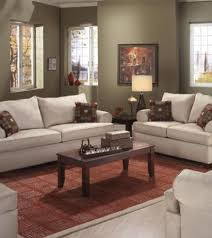What Are Roman Blinds
The cloth that is used in Roman blinds comes in a
variety of patterns and textures. The material is held down by stiff rods or
metal support and folded to create a hobbled look or a teardrop style. The
cloth is light weight or medium weight fabric is fitted to head rails made of
aluminium. Popular materials that go to make up a roman blind are translucent
fabrics that are selected from a range of curtain textiles to blend and enhance
home décor. A backing of white material ensures that the colours and patterns
on the cloth do not fade in the sunlight.
Bamboo and reeds are used in roman blinds to take
advantage of the naturally cooling properties of the material. These blinds
also add a touch of the oriental to the home. Some of the popular designs and
textures are typical Japanese, Sumatran or Chinese and so on. The manufacturing
process aims to retain the natural texture, colour and feel of the original
bamboo. In some instances the bamboo is dried for almost six months to achieve
tortoise shell pattern that is beautiful to behold and a treasure to posses.
All these blinds fold up easily and are decorated with wooden tassels made with
matching colours.
Most Roman blinds are custom made to
specification. They can be hand stitched or machine stitched. Most Roman blinds
are delivered with the required accessories, ready to use. Blind making kits
are also available online for those who love to create art and decorate every
corner of their home themselves.
Measuring for Roller Blinds is something that every customer needs to do himself
or get it done with a professional. The measurements will be determined by your
decision whether you want to hang your Roman blinds inside or outside the
recess.
If the blind is to be fitted inside the recess,
the "recess size" will have to be quoted so that the manufacturer can
make the necessary adjustments to arrive at the perfect fit during the process
of creating the Roman blind. If the recess is less than 7.5 cm or 3 inch deep;
or the window opens inwards; the window is not straight or the width or height
varies more than 2 cm (3/4 inches), the Roman blind cannot be fitted inside.
If the Roman blind is to be fitted outside the
recess, the manufacturer will need to know the "blind size". If the
decision is that more than one blind is to be fitted to the window, the size of
each blind must be separately specified in millimetres.
Measurement for blind size or recess size is to
be done with a metal tape that sets out the measurements in centimetres and
millimetres. While measuring for recess size, the width and drop should be
measured from at least three different positions keeping in mind the fact that
protrusions and dado rails will impact on the look and feel of the Roman blind
and the way it drapes the window. Even the smallest changes in width and drop
should be noted. If the blind is being fitted outside, the length and width of
the blind should extend beyond the frame of the window by 10 cm on all sides.
The width and drop size should be quoted in millimetres for Blind size.
The package containing the Roman blind will
contain lined fabric, strips of wooden or plastic dwelling that is 32mm-77mm
less than the blinds width, small plastic rings, wooden or brass acorn, Nylon
cord, wall cleat, stick and sew Velcro enough for the width of the blind,
wooden batten in the width of the finish blind and four screw eyelets.
The blind is fitted to the window by first fixing
the blind track or wooden batten in the selected position on the window. If the
blind is designed to hang within the recess, this batten is to be fixed on the
underside of the window frame. If the blind is to hang on the outside of the
recess, it is to be fixed to the top of the window frame or above it.
Roman Blinds are high cost window treatments. The
creation of a single blind requires a combination of skillful engineering and
fabric styling. Each blind requires a visit to the drawing board. Hence
manufacturers feel best suited if they have high volume orders, so that they
can develop an efficient production environment for the creation of the blinds.
It is for this reason that Roman blinds can be a little more expensive than
other blind types.




Comments
Post a Comment